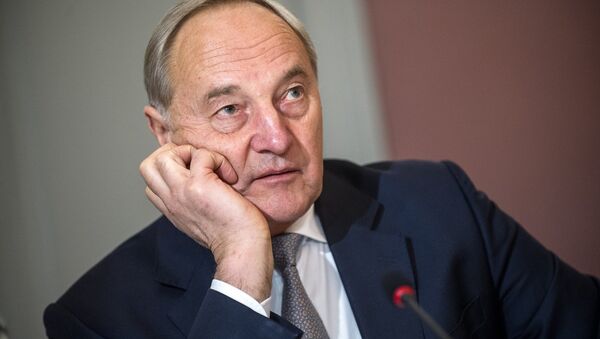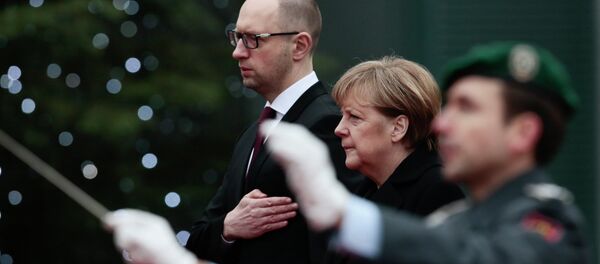MOSCOW, January 13 (Sputnik) — Latvian President Andris Berzins' participation in the forthcoming celebration in Russia of the 70th anniversary of the victory over Nazi Germany will depend on the situation in Ukraine, the Baltic state’s foreign minister said Tuesday.
Rinkevics added that the possible participation of the Latvian president in the Victory Day celebrations will have to be coordinated with other EU countries, as Latvia currently holds the presidency of the Council of the European Union.
In December 2014, Russia invited Berzins to participate in the celebration of Victory Day on May 9. The Latvian president has not yet made a final decision about attendance.
Relations between Russia and the West have dramatically deteriorated since the escalation of the Ukrainian crisis, with European countries accusing Moscow of interfering in Ukraine's internal affairs. Late in December, the Russian Foreign Ministry said that relations with Europe will remain Moscow’s foreign policy priority despite the current tensions.



